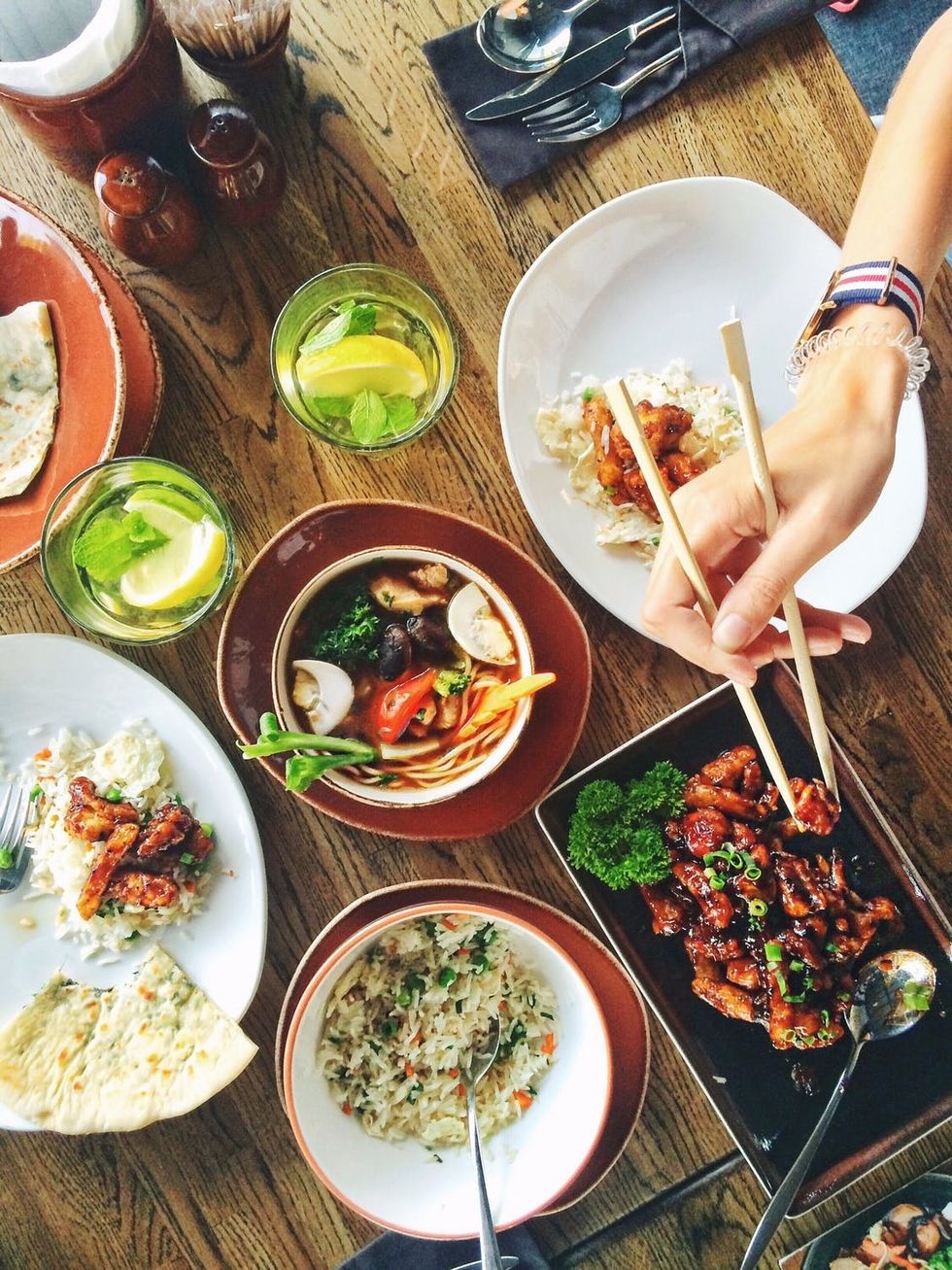The scent of grease and garlic densely hangs in the air. The room is hot and lively with raucous voices and bubbling laughter. Utensils clang together and plates sloppily scrape over each other as they are distributed around a table. Across the room, a man in a collared shirt and waist apron pushes a metal cart from the back room: "noodles! Fresh veggie noodles! You want?" Near the front entrance, families are crowded against each other, eagerly awaiting their seats and a first round of entrees.
This is the chaos of a Chinese restaurant on Christmas Day. While most Americans associate Christmas with extravagant homemade meals plated on festive tablecloth, December 25 comes with another, more unique tradition. For Chinese and Jewish families, Christmas means a visit to the local dim sum or traditional Chinese restaurant.
Although this tradition may appear to be rather odd, it is actually a very logical development: Chinese restaurant owners are known and appraised for their persistence and dedication to their businesses. While other restaurants may close their doors on national holidays to allow employees to celebrate with their friends and family, Chinese restaurants often stay open, perhaps capitalizing on the temporary decrease in competitors. In fact, searches for "restaurants open Christmas," "Chinese food on Christmas," and similar searches on Google spike dramatically during the three days leading up to the holiday.
As consumers, we cannot help but rejoice when our favorite establishments are operating late or open on holidays. However, we must keep in mind the sacrifices of those running such businesses: many small Chinese restaurant owners keep their doors open at nontraditional hours not for enjoyment, but rather out of financial desperation. Just one example of many, Tom Sit (interviewed by the New York Times) has worked at Eng's for seven days a week, twelve hours a day for much of his life.
With this, I implore you once again to consider the humanity of business owners when visiting their establishments. A simple gesture of gratitude or respect can lighten the very heavy burden on their calloused hands.


















